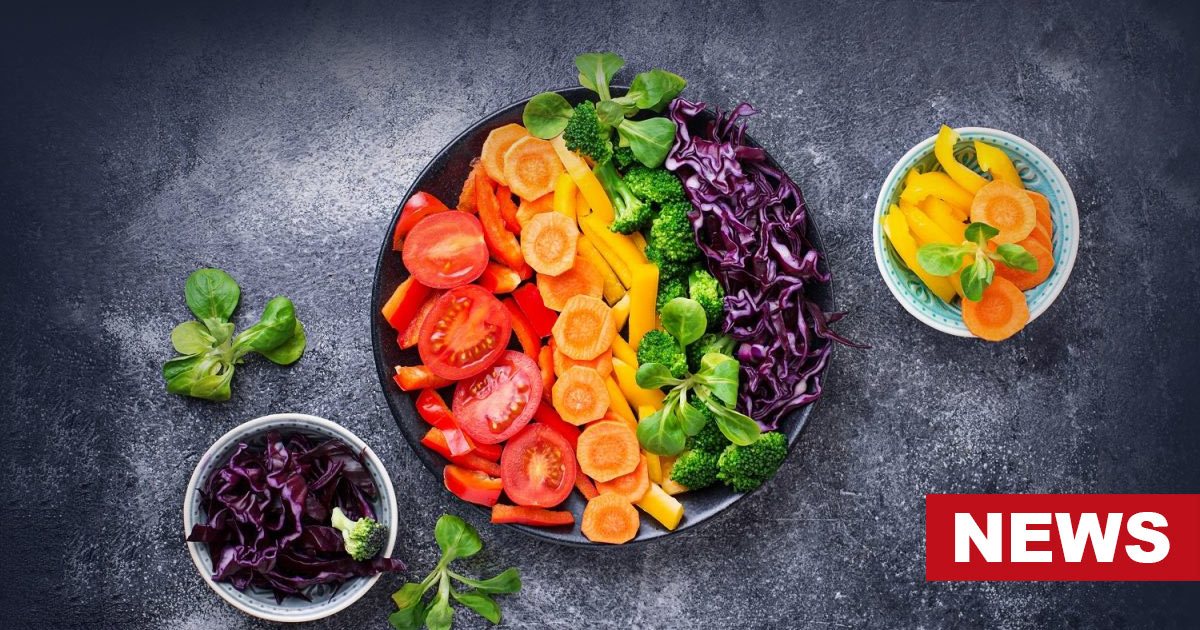- The rainbow diet for mental health offers a spectrum of fruits and vegetables rich in essential nutrients and antioxidants.
- This dietary strategy boasts of both neurological and mental health benefits.
In the pursuit of disease prevention, immune system enhancement, and cognitive empowerment, individuals often inquire about dietary choices that can fend off chronic ailments, cognitive decline, and depression, while furnishing their bodies with vital minerals and vitamins.
Beyond a mere balanced diet, nutrition authorities advocate for an infusion of vibrant colors onto one’s plate to not only optimize bodily performance but also to invigorate cognitive capacities.
In today’s fast-paced world, a confluence of factors ranging from inadequate nutrition to mounting stress can induce feelings of fatigue, depleted energy, and anxiety.
Unveiling the intricate interplay between dietary habits and mood regulation unveils the potential to sustain an elevated emotional state, bolster productivity, and cultivate an overall sense of well-being.
The rainbow diet, characterized by a medley of fruits and vegetables spanning hues like red, yellow, purple, green, orange, and more, transcends the conventional approach by limiting carbohydrates, gluten, fats, and meats that could potentially strain the system over time.
This diet composition harnesses the potential of fruits and vegetables brimming with specific micronutrients, which not only contribute to well-being but also furnish indispensable antioxidants and anti-inflammatory agents. Notably, the substantial fiber content inherent to this dietary regimen augments digestive functions, thereby amplifying overall health, including mental equilibrium.
According to Dr. Uma Naidoo, a psychiatrist with Harvard training, a culinary expertise, and a specialization in nutrition, the act of “eating the rainbow” stands as an indispensable pillar for attaining optimal mental health and well-being.
Diverse shades of plant-based foods inherently harbor an assortment of nutrients, antioxidants, and phytochemicals that synergistically bolster brain functionality and facilitate mood management. Dr. Naidoo, through a recent Instagram post, offered her insights on incorporating the rainbow diet for mental health benefits.
To actualize the mental health benefits of rainbow diet, Dr. Naidoo proposes the following strategies:
- Abundant Array of Colorful Vegetables and Fruits: A conscious effort to embrace a wide array of vibrantly hued vegetables and fruits is encouraged. These natural wonders are a reservoir of essential vitamins, minerals, and antioxidants, pivotal for safeguarding brain cells against damage and orchestrating optimal cognitive performance.
- Verdant Leafy Greens: The verdant expanse of leafy greens presents a rich source of folate, a crucial element for neurotransmitter synthesis and mood steadiness.
- Bountiful Berries: Berries, adorned with their brilliant pigments, harbor a profusion of antioxidants, effectively countering oxidative stress – a factor implicated in mood disorders.
- Radiant Orange and Yellow Fare: Foods such as sweet potatoes, carrots, and bell peppers manifest in shades of orange and yellow, offering a bounty of beta-carotene and vitamin C, which synergistically buttress brain health and fortify immune responses.
- The Royal Purple: Inclusion of purple-hued fruits like grapes, blackberries, and plums introduces anthocyanins – compounds celebrated for their anti-inflammatory attributes and neuroprotective prowess.
- Multicolored Whole Grains: The tapestry of whole grains, spanning colors like ivory, amber, and brown, encapsulates selections like quinoa, brown rice, and whole wheat. These grains, beyond furnishing sustained energy, establish links to ameliorated mood and heightened cognitive capabilities.
- Nuts and Seeds Variety: Nurturing the habit of snacking on a medley of nuts and seeds – almonds, walnuts, chia seeds, and flaxseeds – endows the system with wholesome fats, fiber, and pivotal nutrients that champion cerebral well-being.
- Lean Protein Ensemble: Lean protein sources, inclusive of fish, poultry, legumes, and tofu, stand as cornerstones. These edibles offer a profusion of amino acids, fundamental for the synthesis of neurotransmitters essential to mental equilibrium.
- Herbal and Spiced Infusion: The aromatic inclusion of herbs and spices, such as turmeric, ginger, and rosemary, holds compounds renowned for their anti-inflammatory attributes and their potential to amplify cognitive faculties.
In essence, the rainbow diet for brain health serves as a dynamic strategy for augmenting cognitive fitness, emotional harmony, and overall vitality.
Dr. Naidoo’s multifaceted expertise underscores the symbiotic relationship between vibrant nutrition and psychological well-being, presenting individuals with an approachable avenue towards cultivating sustained positive moods and harnessing unparalleled productivity while fostering an all-encompassing sense of wellness.




























